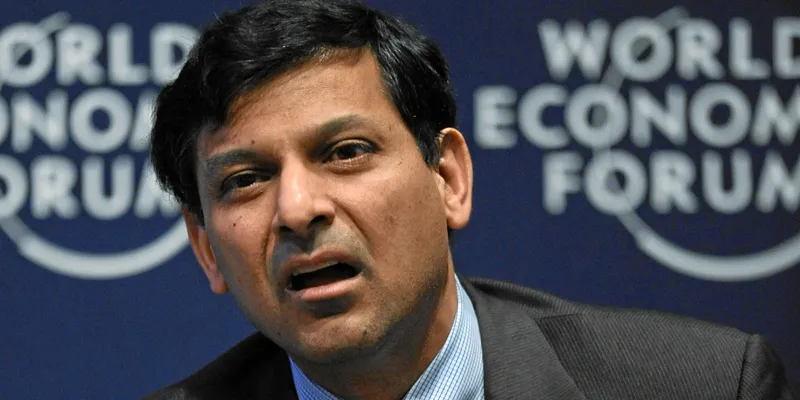9 things you didn’t know about ex-RBI Governor Raghuram Rajan, the ‘James Bond’ of the Indian economy
“It is not because of the benevolence of the baker that we eat fresh bread every morning, but because of his desire to make money.”
Raghuram Rajan has often been called the ‘James Bond’ of Indian business due to his self-explanatory ability to have brought it back from the edge of the cliff. The ex-RBI Governor’s seemingly liberal three-year term was a fresh relief for the country’s economy, considering the increase in the foreign capital from $249 billion in September 2013 to $359.76 billion as of April 1, 2016.

Rajan, who was recently in the news for warning against a possible US-China trade war, was born into an affluent Tamil family residing in Madhya Pradesh. Following a stint in engineering at IIT, he studied business management at IIM and later at MIT. An acclaimed author and academic, Rajan took the country by surprise when he announced last June that he would be resigning from his post come September.
The measures Rajan implemented during his term as the 23rd Governor of the RBI were not always in the interest of the reigning BJP government. It is no news that Rajan would often experience indirect clashes with the Centre, but the 53-year-old continued to push for the same, be it speaking out against the currency ban, doubting the Government’s new method of calculating the GDP or making statements like “The RBI is not a cheerleader.”
Despite these undercurrents, Rajan almost always received positive recognition from the masses – national and international. And due to his palpable talent in the realm of business, he was fairly young when he began to be offered some of the most prestigious posts and awards angling from the sector.
Today, on his 54th birthday, we wish to list out a series of anecdotes that you may not have known about India’s (arguably) favourite RBI Governor.
- Rajan was the youngest person to occupy the position of the Chief Economist at the International Monetary Fund (IMF), which he served from 2003 to 2007. His predecessor, Kenneth Rogoff, was 48 at the time of his inauguration.
- In 2005, he released a paper, ‘Has Financial Development Made the World Riskier?’, where he predicted an on-coming global financial crisis. In response to this, American economist Lawrence Summers called him a ‘luddite’. But sure enough, Rajan’s prediction came true and the world divulged into one of the greatest financial crises, in 2008-2009.
- After his first day as Governor of the RBI, the rupee rose 2.1 per cent against the US dollar. Before this, the rupee had weakened sharply against the dollar, hitting almost Rs 69 to a single dollar.
- To tackle inflation, the RBI under Rajan decided to adopt the Consumer Price Index (CPI) despite the Central Government’s disapproval. As a result, the CPI dropped from 9.52 percent in August, 2013 to 5.24percent in April, 2016, accompanied by the required drop in global commodity prices.
- Under him, the RBI licensed two universal banks and approved eleven payments banks so that the country’s banking services could be extended to the two-thirds of population, who were until then still deprived of basic banking facilities.
- During his term, the RBI sold the longest ever government bonds with a 40-year maturity and also actively began to endorse the concept of mobile-to-mobile payments.
- During his stint at IIT Delhi, he not only headed the student’s council but also received the Director’s gold medal as the best all-round student. Following this, he went on to study at IIM Ahmedabad, and after graduation, he joined Tata Administrative Services as a management trainee. However, he soon left this to pursue a doctoral program in management at the MIT Sloan School of Management.
- In 2010, he published his bestseller, Fault Lines: How Hidden Fractures Still Threaten the World Economy, which was awarded the title prestigious title of ‘the best business book of the year’ by Financial Times – Goldman Sachs.
- In a speech he gave in 2014, Rajan stated that demonetisation was not an effective enough measure to curb black-money, because to him, “clever people find ways around it.” Some also stated that this conflict regarding a difference of opinions in terms of the demonetisation policy was the reason for Rajan’s exit from the RBI Governor’s office.
Although Rajan may have made an exit from the most powerful chair in the Indian economy, he is the de facto James Bond of the Indian economy. Happy birthday, sir!







